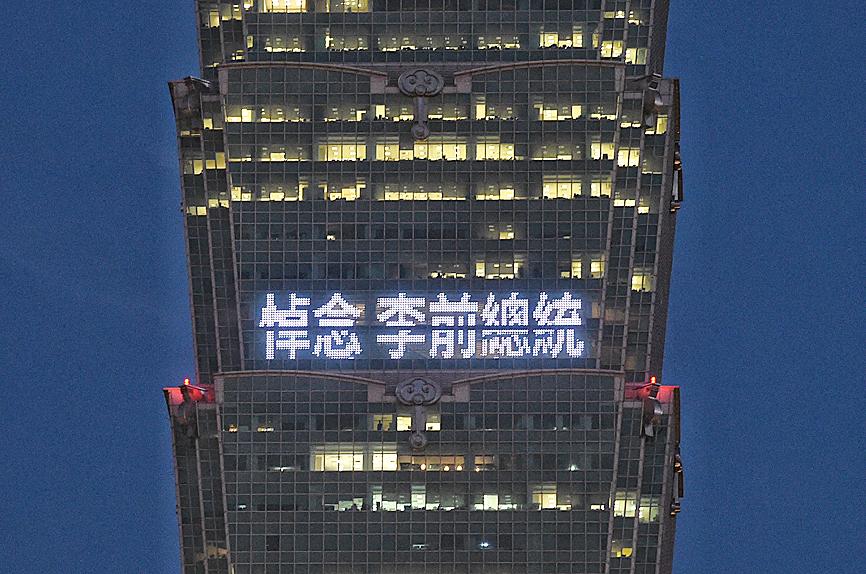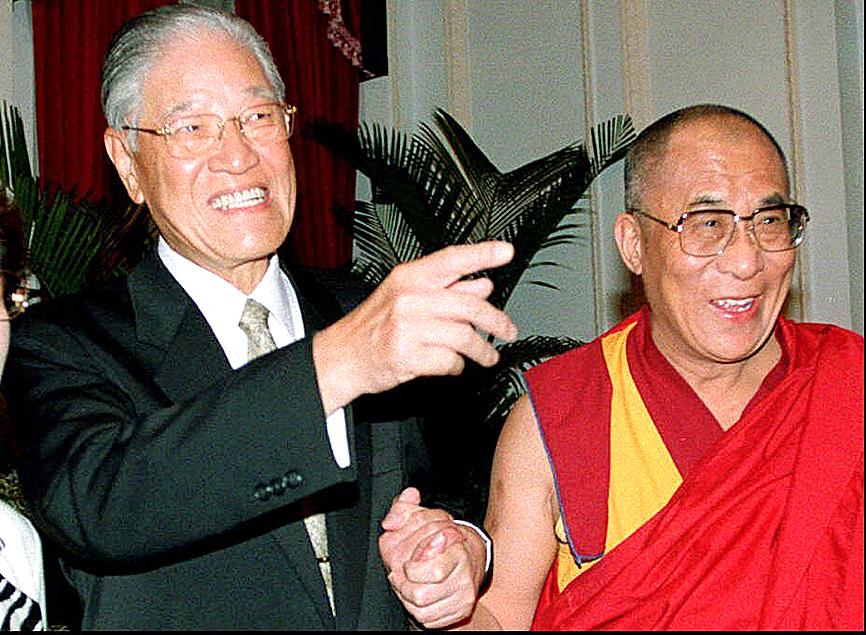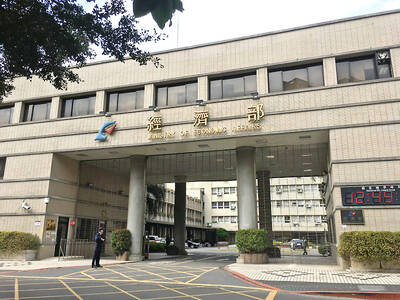The White House in a statement on Friday marked the passing of former president Lee Teng-hui (李登輝), while Lee’s alma mater Cornell University issued an obituary remembering his academic achievements and his 1995 speech during a visit to the campus.
It followed a statement by US Secretary of State Mike Pompeo marking Lee’s contributions to Taiwan’s democratization.
Lee died due to septic shock and multiple organ failure in Taipei on Thursday evening. He was 97.

Photo: Fang Pin-chao, Taipei Times
The White House statement said that “President Lee was Taiwan’s first popularly elected leader and stepped down in adherence to term limits. President Lee was the architect of Taiwan’s modern democratic system, which today serves as a shining example of citizen-centric governance for the region and the world.”
“He led Taiwan through its transition from authoritarian military rule to a prosperous, free and open society. He will always be remembered for his strong commitment to democratic principles and human dignity,” it said.
The White House statement came after the US National Security Council remembered Lee as “Mr Democracy.”

Photo: AP / Yeh Tao-chuan
“We offer our deepest condolences to the people of Taiwan and the loved ones of former President Lee Teng-hui, the first popularly elected leader of Taiwan. ‘Mr. Democracy’ was a champion for freedom and the architect of Taiwan’s free and open society,” it said.
Cornell University, where Lee earned a doctorate in agricultural economics in 1968, published an obituary on its Web site.
Lee’s dissertation, titled “Intersectoral Capital Flows in the Economic Development of Taiwan, 1895-1960,” was selected as the outstanding dissertation of 1968 by the American Agricultural Association and later published as a book by the Cornel University Press, the school said.
Cornell also noted Lee’s speech at the Cornell Reunion on June 9, 1995, which he delivered in English.
Saying the visit “has been a long and challenging journey, with many bumps in the road,” Lee in his speech thanked the US Congress and people for their support, and then-US president Bill Clinton for his “statesman-like decision” that made his visit possible.
Clinton had refused Lee’s request for a visa in 1994.
Throughout his speech, Lee referred to Taiwan as “the Republic of China on Taiwan,” while touting “the Taiwan experience” of peaceful political change from authoritarianism to democracy.
Several hundred reporters from around the world covered Lee’s visit, and the lecture was broadcast throughout Asia and around the world, Cornell said.
Following Lee’s visit to the US, China launched missiles into the waters near Taiwan and the US responded by sending two aircraft carrier battle groups to the region, which later became known as the Third Taiwan Strait Crisis of July 1995 to March 1996.
Chen Jian (陳兼), professor emeritus of history and China-US relations at Cornell, said in the school's statement that “Lee will be remembered as a leader who played a significant role in Taiwan’s transition toward democratization and who also shaped the trajectory of Taiwan’s increasing separation from mainland China” and that "history will judge."
Separately on Friday, the Dalai Lama conveyed his condolences to Lee’s family via a letter delivered by the Dalai Lama’s office, saying that he had considered Lee a “personal friend” since his first visit to Taiwan in 1997.
That Taiwan enjoys such vibrancy, prosperity and rich cultural heritage as a democratic nation owes much to Lee’s contributions to the democratization of Taiwan, the Dalai Lama said.
Remembering Lee’s courage and resolve, and emulating his devotion to democracy is the best way to respect him, the Dalai Lama said.
Exiled Tibetan President Lobsang Sangay said that Lee’s meeting with the Dalai Lama marked the beginning of a new chapter in the Taiwan-Tibetan friendship.
Additional reporting by Chung Li-hua

LIMITS: While China increases military pressure on Taiwan and expands its use of cognitive warfare, it is unwilling to target tech supply chains, the report said US and Taiwan military officials have warned that the Chinese People’s Liberation Army (PLA) could implement a blockade within “a matter of hours” and need only “minimal conversion time” prior to an attack on Taiwan, a report released on Tuesday by the US Senate’s China Economic and Security Review Commission said. “While there is no indication that China is planning an imminent attack, the United States and its allies and partners can no longer assume that a Taiwan contingency is a distant possibility for which they would have ample time to prepare,” it said. The commission made the comments in its annual

DETERMINATION: Beijing’s actions toward Tokyo have drawn international attention, but would likely bolster regional coordination and defense networks, the report said Japanese Prime Minister Sanae Takaichi’s administration is likely to prioritize security reforms and deterrence in the face of recent “hybrid” threats from China, the National Security Bureau (NSB) said. The bureau made the assessment in a written report to the Legislative Yuan ahead of an oral report and questions-and-answers session at the legislature’s Foreign Affairs and National Defense Committee tomorrow. The key points of Japan’s security reforms would be to reinforce security cooperation with the US, including enhancing defense deployment in the first island chain, pushing forward the integrated command and operations of the Japan Self-Defense Forces and US Forces Japan, as

‘TROUBLEMAKER’: Most countries believe that it is China — rather than Taiwan — that is undermining regional peace and stability with its coercive tactics, the president said China should restrain itself and refrain from being a troublemaker that sabotages peace and stability in the Indo-Pacific region, President William Lai (賴清德) said yesterday. Lai made the remarks after China Coast Guard vessels sailed into disputed waters off the Senkaku Islands — known as the Diaoyutai Islands (釣魚台) in Taiwan — following a remark Japanese Prime Minister Sanae Takaichi made regarding Taiwan. Takaichi during a parliamentary session on Nov. 7 said that a “Taiwan contingency” involving a Chinese naval blockade could qualify as a “survival-threatening situation” for Japan, and trigger Tokyo’s deployment of its military for defense. Asked about the escalating tensions

The Ministry of Economic Affairs said it plans to revise the export control list for strategic high-tech products by adding 18 items under three categories — advanced 3D printing equipment, advanced semiconductor equipment and quantum computers — which would require local manufacturers to obtain licenses for their export. The ministry’s announcement yesterday came as the International Trade Administration issued a 60-day preview period for planned revisions to the Export Control List for Dual Use Items and Technology (軍商兩用貨品及技術出口管制清單) and the Common Military List (一般軍用貨品清單), which fall under regulations governing export destinations for strategic high-tech commodities and specific strategic high-tech commodities. The